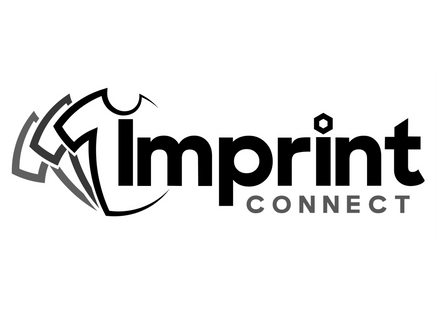Employees are important as brand ambassadors, influencing public opinion through their personal connections. However, many companies struggle with low rates of employee social media posts about their brand. This gap limits the potential reach and authenticity that comes from genuine employee voices.
Key challenges include:
- Uncertainty about what to share
- Concerns over professionalism
- Feeling disconnected from company messaging
Branded apparel offers a unique solution to these challenges. It provides something tangible and visually appealing that naturally encourages employees to proudly display their affiliation. Wearing company-branded clothing not only creates a sense of belonging but also sparks genuine social sharing that feels effortless and authentic.
For example, custom trucker hats have become significant fashion statements and effective marketing tools. Similarly, embroidered hats act as mobile advertisements while establishing a strong and recognizable brand identity.
Additionally, branded apparel can include items like birthday t-shirts, which serve as practical gifts and memorable keepsakes. Understanding the technical aspects of branded apparel such as the difference between screen printing and heat press transfers or mastering screen printing techniques can further enhance the effectiveness of your branded merchandise.
This article explores Why Your Employees Don’t Post About Your Brand—And How to Fix It with Apparel, showing how thoughtful use of branded clothing can turn employee advocacy into a powerful marketing tool.
Why Employees Don’t Post About Your Brand
Despite the potential benefits of brand promotion through employee social media usage, there are several [barriers that prevent employees from posting about your brand](https://medium.com/@stitch_my_garment/elevate-your-corporate-image-with-embroidered-polo-shirts-808380500480).
Common Concerns Employees Have About Posting
One of the primary reasons for [employee reluctance on social media](https://medium.com/@imprintconnect/from-blank-canvas-to-custom-art-interesting-facts-about-screen-printed-t-shirts-3110cad93a33) is the fear of sharing incorrect content. This fear is often exacerbated by a lack of clear guidelines on what is acceptable to post about the brand.
Professional Image Concerns
Employees frequently worry about maintaining their professional image on personal accounts. They feel that sharing company-related posts may conflict with their personal branding or professional persona. This concern is particularly relevant in today's world where custom embroidered hoodies and other branded apparel are becoming popular, yet employees may still hesitate to wear them outside of work due to personal image concerns.
Inauthenticity and Disconnection
Another significant factor contributing to this reluctance is the feeling of inauthenticity or disconnection from company messaging. Employees may not fully align with the company's branding or messaging, leading to discomfort when posting about it.
Time Constraints and Unclear Benefits
Additionally, many employees cite a lack of time as a reason for not posting about the brand. They may also struggle to see personal benefits from such postings, which further discourages them from participating in brand promotion efforts.
Addressing these concerns and providing clear guidelines can help encourage employees to share more about your brand on their social media platforms.
The Power of Employee Advocacy in Brand Promotion
Employee advocacy is a powerful marketing strategy where employees become brand ambassadors by promoting the company through their personal social networks. This approach can significantly increase brand awareness and lead generation.
Definition and Impact
Employee advocacy involves employees sharing company content, events, or values on their personal social media platforms. This strategy leverages the reach and credibility of employees to enhance brand visibility and engagement with a wider audience.
Micro-Influencers
Employees act as trusted micro-influencers who can lend an authentic voice to the brand's reputation. Their posts are perceived as more genuine and trustworthy compared to traditional marketing messages, making them valuable assets in building brand loyalty and credibility.
By harnessing the power of employee advocacy, companies can tap into a pool of influential advocates who not only amplify brand messaging but also contribute to a more humanized and relatable brand image. One effective way to enhance this advocacy is through branded clothing. For instance, embroidered polos or custom apparel with strategic logo placement can serve as powerful tools in promoting the brand. These items not only represent the company's identity but also blend seamlessly into business attire, making them an important aspect of branding.
Moreover, personalized embroidered polo shirts can transform your brand into a marketing powerhouse. They elevate your branding efforts while maintaining a professional appearance. Similarly, custom hoodies have become a popular trend, offering unique style while promoting brand visibility.
However, it's crucial to ensure that customers remember your brand after their first interaction. Implementing good custom clothes and signs can significantly help in maintaining visibility and ensuring that customers don't forget your brand easily, which is often a challenge for small businesses as discussed in this article about why customers forget brands.
How Branded Apparel Fixes Low Employee Posting Rates
The impact of branded apparel goes beyond simple uniforms or swag. It serves as a tangible symbol of workplace culture and belonging, giving employees something visually shareable that naturally sparks social engagement. When employees wear apparel that feels authentic and high-quality, it fosters genuine pride in their affiliation with the brand, as highlighted in this article on Employee Pride and Branded Apparel.
The Challenge: Generic Gear and Employee Hesitation
Many employees hesitate to post about their company because generic or low-quality gear makes them feel disconnected or embarrassed. This “not proud” feeling blocks authentic sharing and limits employee-social-posting-branded-apparel opportunities.
The Solution: Investing in Stylish, Well-Designed Apparel
Investing in stylish, well-designed apparel transforms that dynamic by:
- Creating a visible badge of identity and inclusion
- Encouraging natural photo moments that showcase team spirit
- Enhancing workplace culture visibility on social channels
- Building a stronger emotional connection between employee and employer
When employees feel proud to represent the brand through apparel, they are more motivated to showcase their experience online. This connection drives higher rates of organic sharing, amplifying brand reach with posts that feel real rather than scripted.
The Power of Custom Branded Apparel
Branded apparel becomes more than just clothing; it’s an essential tool for shifting employee attitudes from hesitant observers to enthusiastic advocates eager to tell their story visually. For instance, custom branded apparel has been recognized as a marketing powerhouse, effectively increasing brand visibility and engagement.
Moreover, specific items like custom embroidered hats can serve as powerful marketing tools, allowing employees to become walking advertisements for your brand.
However, it's important to note that the effectiveness of these strategies can be undermined by certain workplace issues which may affect productivity and team morale. Addressing these workplace issues is crucial in creating an environment where branded apparel can truly shine. Ultimately, leveraging these strategies not only enhances employee pride but also significantly boosts the company's online presence, making it a win-win situation for both parties involved.
Encouraging Authentic Posting Beyond Apparel
The Importance of Executive Support and Incentives
Executive support is crucial in fostering a culture of authentic employee advocacy. When leaders actively participate and recognize employees' efforts, it motivates others to engage as well. Incentives like shoutouts, bonuses, or even extra time off can significantly boost morale and encourage consistent posting.
Allowing Personalized Posts
Employees are more likely to post authentically when they can share their own voice and experiences. Allowing them creative freedom within brand guidelines ensures that the content feels genuine and resonates with their audience. Personalized posts also help in showcasing the diverse perspectives within the company.
Providing Ongoing Social Media Skills Training
Not all employees may feel confident in their social media abilities. Offering regular training sessions on best practices, content creation, and platform updates equips them with the necessary skills to navigate the digital landscape effectively. This investment in upskilling empowers employees to become confident brand advocates online. It's important to note that such security awareness training is also essential in today's digital landscape.
By combining executive support, personalized content creation, and continuous skills development, companies can nurture a community of engaged employees who authentically promote the brand beyond just wearing branded apparel.
The Power of Personalization
Personalization plays a significant role not just in social media posts but also in the realm of branded merchandise. For instance, custom tumblers or personalized baseball caps can serve as excellent tools for promoting the brand while allowing employees to express their individuality.
Moreover, with advancements in technology such as AI, the world of custom apparel is evolving rapidly. This shift not only enhances the personalization aspect but also opens up new avenues for employee advocacy.
In addition, understanding T-shirt design placement can further enhance the effectiveness of custom apparel used for branding purposes.
Lastly, as we look towards 2024 and beyond, it's essential to stay updated with trends such as custom hoodies, which are becoming increasingly popular among employees for both comfort and style.
Implementing a Successful Employee Advocacy Program with Apparel Integration
To simplify participation tracking and amplify messaging in an employee advocacy platform, dedicated platforms can be utilized. These platforms not only make it easier to track the involvement of employees but also help in amplifying the overall messaging.
A successful program requires consistent curated content combined with flexible messaging guidelines. This ensures that the content shared by employees aligns with the company's brand voice while still allowing for personal expression.
Finally, monitoring key performance indicators such as adoption rate, engagement metrics, and earned media value (EMV) is crucial for evaluating the success of the program. One important aspect to track is KPI tracking employee posts, which can provide valuable insights into how well the content is being received and engaged with by the audience.
Conclusion
Investing in appealing branded apparel plays a crucial role in boosting employee brand sharing and driving authentic social media advocacy. Apparel transforms abstract company values into visible, shareable moments that employees feel proud to showcase. This tactile connection helps address Why Your Employees Don’t Post About Your Brand—And How to Fix It with Apparel, making advocacy natural and enjoyable rather than forced. Companies that prioritize well-designed, quality gear alongside supportive programs create a culture where employees become enthusiastic brand ambassadors, amplifying reach and reinforcing genuine engagement across social channels. Such a strategy is not just beneficial for large corporations but can also serve as a growth strategy for small businesses looking to enhance their brand visibility and employee engagement.
FAQs (Frequently Asked Questions)
Why don’t employees post about their company brand on social media?
Employees often hesitate to post about their company due to concerns about sharing incorrect content, maintaining a professional image on personal accounts, feeling disconnected from company messaging, lack of clear posting guidelines, and uncertainty about personal benefits from posting.
How does employee advocacy benefit brand promotion?
Employee advocacy leverages employees as trusted micro-influencers who provide an authentic voice for the brand, significantly increasing brand awareness and lead generation through genuine social sharing.
In what ways can branded apparel encourage employees to share about the brand?
Branded apparel serves as a tangible symbol of company culture and belonging that employees feel proud to wear and share visually, overcoming feelings of inauthenticity linked to generic or low-quality gear and boosting workplace culture visibility.
What strategies can companies use to encourage authentic employee social media posting beyond just providing apparel?
Companies should seek executive buy-in, incentivize participation through recognition or rewards, allow personalized rather than scripted posts, and provide ongoing social media skills training to foster genuine employee advocacy.
How can organizations implement a successful employee advocacy program integrating branded apparel?
Successful programs utilize dedicated advocacy platforms for easy participation tracking and message amplification, maintain consistent curated content with flexible messaging guidelines, and monitor key performance indicators such as adoption rates, engagement metrics, and earned media value (EMV).
Why is investing in appealing branded apparel important for boosting employee brand sharing?
Investing in appealing branded apparel is crucial as it enhances employee pride and connection to the company culture, making employees more likely to share authentic social media posts that amplify the brand’s reach as part of a broader advocacy strategy.

